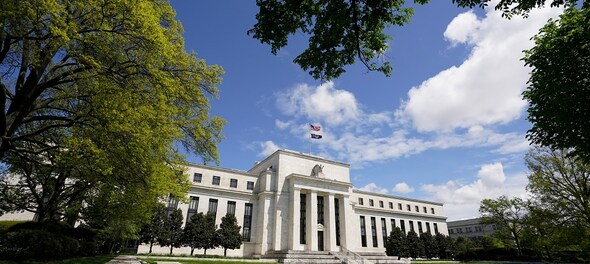
The United States Department of Labour recently revealed that consumer prices have increased by 7.5 percent over the past year. This inflation rate is the highest recorded in 40 years in the country. Increasing cost of labour, shortage of goods and services, and supply chain headaches have contributed to the inflation on the supply side of the equation.
At the same time, fiscal stimulus from the US Federal Reserve and aid from the US government, low borrowing rates and rapid economic recovery created strong demand. This mismatch of demand and supply has led to demand-pull inflation in the US.
The US Federal Reserve had maintained an accommodative stance for a large portion of the previous year, but has recently indicated through hawkish statements on interest rate hikes to control inflation in the country.
But while the 7.5 percent inflation may not seem drastic to many Indians, most of whom remember experiencing CPI inflation as high as 12.31 percent in the immediate aftermath of the 2008-2009 economic crisis, the record-high US inflation does spell trouble for India.
Impact on India
As the cost of goods increases in the US, the prices of these goods when they are imported by India are also going to increase. Commodities like edible oils, pulses and most importantly, fuel, are affected by the increase in global (read: American) inflation. The Economic Survey for the year also highlighted this concern – the phenomenon being known as imported inflation.
For the government, the increasing price of energy remains a worry as India is a net importer and has to pay huge bills for the import of crude oil.
But the record-high inflation also means that the US Federal reserve will be even more hawkish in its approach to hiking interest rates. St. Louis Federal Reserve President James Bullard recently said in an interview to Bloomberg that he would like to see interest rates hiked by a full percentage point. Experts and analysts have stated that they expect to see a hike of at least 50 basis points in the upcoming meeting in March.
No matter the predictions, it seems almost certain that the US central bank will be hiking its interest rates through the year to tame the inflation.
As interest rates soar, investors start pulling money out of riskier investments like equities, commodities and foreign markets. As capital leaves from around the world to be parked in US bank accounts, the Reserve Bank of India may be forced to hike its own interest rates to fight the flight of capital. Foreign portfolio investors (FPIs) pulling money out of the equity and bond markets could weaken the rupee even as the dollar gets stronger with the rate hikes.
“An increase in the interest rates in India too, translates to less money in circulation in the economy, implying that the rupee becomes more expensive, and the currency appreciates. An appreciated rupee would pose problems for the export sector and might end up hurting the revenues from exports and overall GDP. Hence, the central government might be against this policy measure,” wrote Payal Seth, a PhD scholar at Bennett University, and Palakh Jain, an associate professor at Bennett University, for the Outlook.
On the flip side, they added, if the RBI doesn’t undertake any action to control the money supply, it would not only lead to continued imported inflation but might also lead to flight of capital to the US (a country with a higher interest rate), leading to loss of potential capital for entrepreneurial opportunities in India.
The allure of higher interest rates may also force the RBI’s hand if they wish to prevent the outflow of foreign investors from government securities. The RBI would have to match the rates so that government securities still remain a viable investment choice for investors so that the government is able to meet its borrowing needs.
In today’s modern world, the economy of each and every nation is almost inexorably linked to one another. The US economy, though on a slowdown in recent years, still remains a behemoth whose shadows can send ripples through the global financial market. The record-high inflation in the country will have effects on not just India but the wider global market.
Read Also |
(Edited by : Thomas Abraham)
Check out our in-depth Market Coverage, Business News & get real-time Stock Market Updates on CNBC-TV18. Also, Watch our channels CNBC-TV18, CNBC Awaaz and CNBC Bajar Live on-the-go!


Lok Sabha elections: 4th phase sees over 68% voter participation, West Bengal leads with 76% turnout
May 14, 2024 1:47 AM
Lok Sabha elections phase 4 witnesses around 63% voter turnout, experts weigh in on key contests
May 14, 2024 12:06 AM
Lok Sabha Election 2024: Shiv Sena UBT’s Arvind Sawant highlights Uddhav Thackeray's vision for Mumbai’s progress
May 13, 2024 9:21 PM
Exclusive interview: 'Southern states will be a big surprise,' says PM Modi
May 13, 2024 9:05 PM

